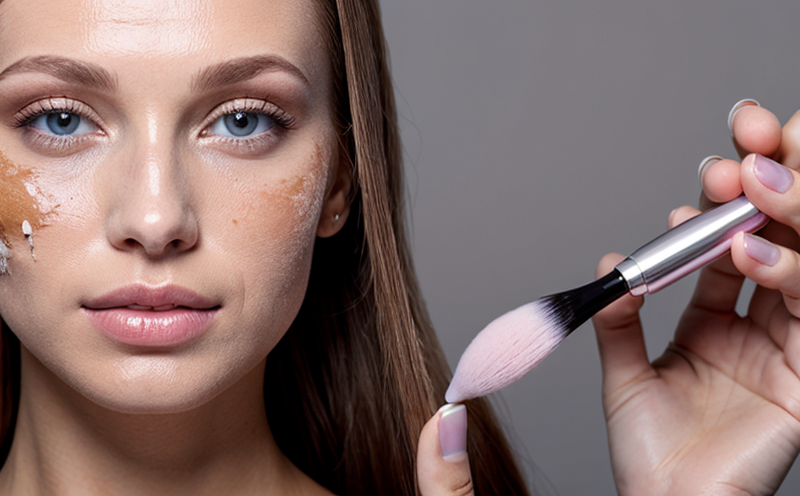EU Cosmetic Regulation EC 1223/2009 Compliance Testing
The EU Cosmetic Regulation EC 1223/2009 is a comprehensive framework designed to ensure the safety and quality of cosmetic products placed on the European market. This regulation, which came into effect in 2013, replaced previous legislation such as Cosmetics Directive 76/768/EEC. It aims to protect consumers by mandating rigorous testing and certification processes for all cosmetic products before they can be sold or marketed.
Compliance with this regulation is mandatory for any manufacturer, distributor, or importer of cosmetics within the European Economic Area (EEA). This includes not only traditional beauty products like shampoos, lotions, and makeup but also items that may have a cosmetic function such as soaps, hair dyes, and perfumes.
The regulation sets out detailed requirements for safety assessments, labeling, and product information. It mandates the use of specific tests to evaluate the potential risks associated with ingredients and formulations. These tests cover a wide range of areas including skin irritation, eye irritation, genotoxicity, and allergenic potential. Additionally, there are restrictions on the use of certain substances like parabens, formaldehyde releasers, and carcinogenic compounds.
Testing must be conducted according to internationally recognized standards such as ISO 10993-1:2018 for general requirements for biocompatibility assessment and ISO/IEC 17025 for testing laboratories. The results of these tests are then compiled into a comprehensive safety dossier which must accompany the product when it is submitted for approval.
Given the complexity of the regulation, many companies find it beneficial to work with experienced third-party laboratories like Eurolab. These labs provide specialized services that ensure not only compliance but also efficiency and accuracy in testing processes. Working with a reputable lab ensures that your products meet all necessary standards while minimizing delays and costs associated with non-compliance.
It is important for manufacturers to understand the implications of this regulation on their business operations. Proper planning and preparation are key factors in ensuring smooth compliance. Companies should allocate resources towards understanding changes in regulations, staying informed about new developments, and investing in state-of-the-art facilities if needed.
In conclusion, adhering to EU Cosmetic Regulation EC 1223/2009 is crucial for any business involved with cosmetic products in the European market. By partnering with a reliable laboratory such as Eurolab, you can ensure that your products are safely tested and certified according to these stringent standards.
Scope and Methodology
The scope of EU Cosmetic Regulation EC 1223/2009 primarily focuses on the safety aspects of cosmetic products. Key areas covered include:
- Safety assessment of individual ingredients used in the formulation.
- Evaluation of potential allergenic effects and irritation risks.
- Assessment of genotoxic properties to ensure no carcinogenic compounds are present.
- Identification and control of microorganisms that could pose health hazards.
The methodology involves several stages:
- Initial review of ingredients lists against prohibited or restricted substances list.
- Conducting appropriate toxicity tests using validated protocols from reputable standards organizations like ISO and IEC.
- Compilation of all test results into a detailed safety dossier.
- Submission of the dossier along with supporting documentation to relevant authorities for review and approval.
This comprehensive approach ensures that every aspect contributing to product safety is thoroughly examined. Each step in this process contributes significantly towards achieving full compliance with EU Cosmetic Regulation EC 1223/2009.
Eurolab Advantages
Partnering with Eurolab offers numerous advantages when it comes to ensuring compliance with the EU Cosmetic Regulation EC 1223/2009:
- Expertise and Experience: Our team consists of highly skilled professionals who possess deep knowledge about regulatory requirements.
- State-of-the-Art Facilities: Equipped with advanced equipment capable of performing cutting-edge tests according to the latest methodologies.
- Timely Service Delivery: Leveraging our efficient processes, we aim to deliver results within agreed timelines without compromising on quality.
- Cost Efficiency: By streamlining your compliance journey through strategic partnerships and optimized workflows, we help reduce overall expenses related to testing.
These benefits translate into peace of mind knowing that your products are rigorously tested and certified by experts who stay updated with all relevant regulations. With Eurolab as your partner, you can focus on innovation rather than compliance challenges.
International Acceptance and Recognition
The EU Cosmetic Regulation EC 1223/2009 is widely recognized across multiple jurisdictions, enhancing its global relevance:
- Australia: Australian authorities often accept compliance documents from EU regulators.
- New Zealand: Similar to Australia, New Zealand tends to recognize EU regulatory approvals.
- Brazil: Brazilian standards closely align with those set out in the EU. Products approved under EC 1223/2009 may find easier entry into this market.
- South Africa: While not directly linked, South African regulations also emphasize product safety and quality.
This international acceptance underscores the significance of adhering to EU Cosmetic Regulation EC 1223/2009. It opens up opportunities for broader market penetration without the need for additional certifications.





